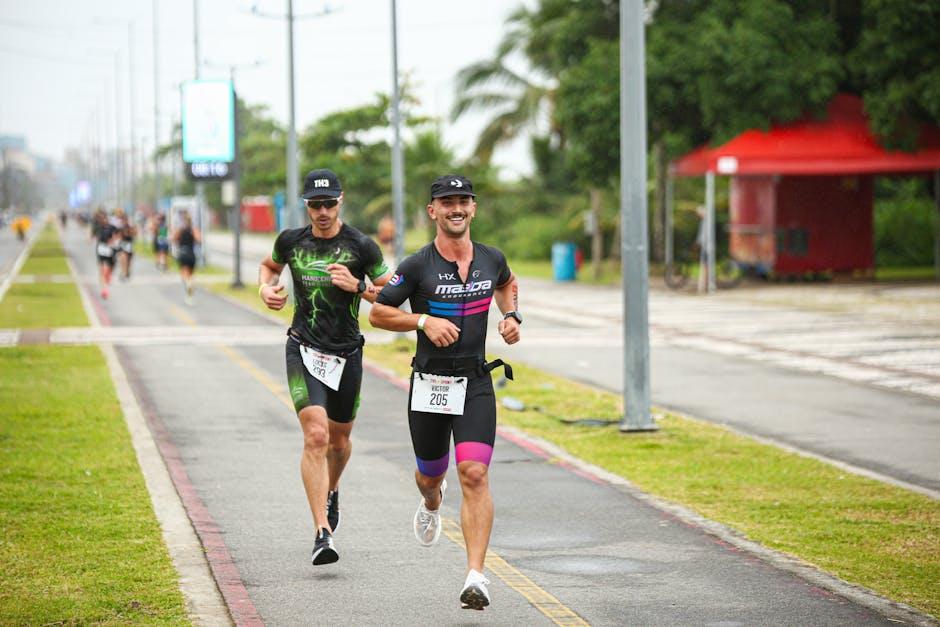Staying hydrated is a cornerstone of peak athletic performance, yet it is often underestimated by athletes of all levels. Whether you’re a seasoned marathon runner, a competitive cyclist, or a weekend warrior, maintaining optimal hydration is crucial for maximizing endurance, enhancing strength, and speeding recovery. In this guide, we’ll delve into the science of hydration, uncovering the pivotal role it plays in athletic success. You’ll learn practical strategies to ensure your body is consistently fueled with the right amount of fluids, enabling you to push boundaries and achieve your personal best. Embrace the power of proper hydration and unlock your full athletic potential with these expert tips and insights.
Mastering Your Daily Water Intake
Achieving optimal hydration is crucial for athletes who wish to enhance their performance and recovery. To effectively manage your daily water intake, start by understanding your body’s unique needs. Listen to your body’s signals; thirst can often be a late indicator of dehydration. Aim to drink water consistently throughout the day rather than waiting until you feel thirsty. This approach helps maintain steady hydration levels and supports your body’s physiological processes during intense workouts.
- Start Your Day Right: Begin with a glass of water as soon as you wake up to jumpstart your metabolism and replenish fluids lost overnight.
- Customize Your Hydration Plan: Consider factors like your body weight, exercise intensity, and climate when calculating your daily water requirements.
- Use Technology: Leverage apps or smart water bottles to track your intake and set reminders to keep you on track.
Remember, hydration isn’t just about water; incorporate electrolytes into your routine, especially after a strenuous workout, to restore balance and prevent muscle cramps. Foods rich in water, such as fruits and vegetables, can also contribute to your daily intake. Keep a reusable water bottle handy, and sip consistently, ensuring that hydration becomes a seamless part of your athletic regimen.

Optimizing Electrolyte Balance for Enhanced Performance
Achieving the right balance of electrolytes is crucial for athletes aiming to reach their peak performance levels. Electrolytes, including sodium, potassium, calcium, and magnesium, are essential for muscle function, nerve signaling, and fluid balance. Without proper management, even the most dedicated athletes can experience cramps, fatigue, and decreased performance. Here’s how you can optimize your electrolyte balance:
- Monitor Your Intake: Pay attention to your diet and ensure you’re consuming foods rich in essential electrolytes. Bananas, avocados, spinach, and yogurt are excellent choices.
- Hydrate Smartly: Incorporate electrolyte-rich drinks into your hydration plan, especially during long or intense workouts. Water alone may not be sufficient to replenish lost electrolytes.
- Customize Your Approach: Understand that electrolyte needs vary from person to person. Factors like sweat rate, exercise intensity, and climate play a role. Adjust your intake based on these variables for optimal results.
By focusing on these strategies, athletes can maintain energy levels, reduce the risk of dehydration, and ultimately enhance their performance on the field, track, or court.
Timing Your Hydration for Maximum Efficiency
To harness the full benefits of hydration, it’s crucial to strategically time your water intake. Here’s how to do it for optimal athletic performance:
- Pre-Workout: Aim to drink at least 500 ml of water about two hours before your workout. This allows your body to absorb and utilize the fluid, preparing you for the exertion ahead.
- During Exercise: Maintain hydration by sipping 150-250 ml of water every 15-20 minutes, especially if you’re engaging in prolonged or intense activity. This helps replace the fluids lost through sweat and keeps your energy levels stable.
- Post-Workout: Rehydrate effectively by drinking 500-750 ml of water within 30 minutes after exercising. Consider including electrolytes if your workout was particularly intense or lasted more than an hour, to replenish lost minerals.
Incorporate these timing strategies into your routine to not only enhance your performance but also to support recovery and overall well-being. By making hydration a calculated part of your regimen, you ensure your body is consistently ready to meet the demands of your sport.
Incorporating Hydration Strategies into Your Training Routine
Implementing effective hydration strategies can make a significant difference in your athletic performance. Pre-hydration is crucial; start your day with a glass of water to kickstart your body’s hydration levels. During training, aim to drink small amounts at regular intervals rather than large quantities infrequently. This helps maintain your body’s fluid balance without overwhelming your system.
- Monitor Your Sweat Rate: Determine how much fluid you lose during a workout by weighing yourself before and after. Replace each pound lost with approximately 16-20 ounces of fluid.
- Electrolyte Balance: Include drinks with electrolytes if your workout exceeds an hour, or you’re training in hot conditions. This helps replenish essential minerals like sodium and potassium.
- Post-Workout Rehydration: Replenish lost fluids with water or a recovery drink. A good rule of thumb is to drink 1.5 times the fluid lost to ensure adequate recovery.
By integrating these strategies into your routine, you’ll maintain optimal hydration levels, ensuring your body is always ready to perform at its best. Remember, consistency is key, and understanding your body’s unique needs will lead to better results.




